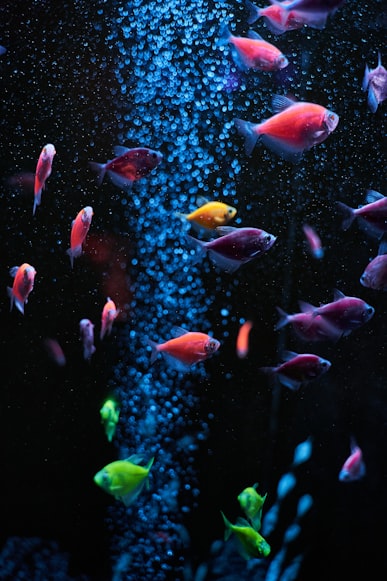Sustainable Development Goals
Introduction
Taking part in SDG’s actions is fundamental for the world and for their habitants, and these goals are the size of the world. This means that each one of us needs to be part of its fulfillment. As Michael Green said in 2015, “the global goals are who we, humanity, want to be”
[1].
Reference
[1] M. Green. "How we can make the world a better place by 2030". TED: Ideas Worth Spreading. [Online]. Available: https://www.ted.com/talks/michael_green_how_we_can_make_the_world_a_better_place_by_2030/up-next.
We asked ourselves a question: who do we want to be and how will we achieve it? We concluded that we want to be part of the development and fulfillment of the SDG’s. It is not an easy task but we are certain that we will contribute to it in our own particular manner.
The Social Progress Index
[2]
Reference
[2] M. Green, J. Harmacek y P. Krylova, «2020 Social Progress Index,» The Social Progress Imperative, 2020. [Online]. Available: https://www.socialprogress.org/static/37348b3ecb088518a945fa4c83d9b9f4/2020-social-progress-index-executive-summary.pdf.
, which measures the global noneconomic dimensions of social performance, shows the indicators of life quality in each country. Currently, Mexico is on the third Tier in this ranking; a fact that is quite alarming since it means that there is plenty to do in our country. We carefully choose a project that targets three Sustainable Goals, two from the social project index, which are “Water and Sanitation”, “Health and Wellness” and “Life Below Water”.
We chose the first one since water is a basic human need that not everybody has access to. The second one was chosen since access to clean drinking water is essential as a foundation of wellbeing. The third objective was chosen due to the dangers to ocean life posed by the exposure to plastics, microplastics and its derivatives.
Overview
Plastic is a problem that affects individuals as well as whole ecosystems. It impacts organisms as a whole and although it may seem at first as a simple problem; in reality, it has more layers. Our project’s aim is to deal with one of the consequences of microplastics degradation: Endocrine Disrupting Chemicals, also known as EDCs. These exogenous compounds can interfere with hormonal pathways, disturbing regulation on the endocrine and reproductive system; and blocking synthesis, translation and action of natural hormones
[3]
Reference
[3] CONACYT, «Proceso de Oxidación avanzada basado en ozono para degradar compuestos disruptores endocrinos presentes en el agua. Agua libre de contaminantes.,» 2014. [Online]. Available: https://centrosconacyt.mx/objeto/agua-libre-de-contaminantes/. /
. They mimic natural hormones but play a poor functional role, leading to abnormalities
[4]
Reference
[4] C. Casals-Casas y B. Desvergne, "Endocrine Disruptors: From Endocrine to Metabolic Disruption", Annual Review of Physiology, vol. 73, n.º 1, pp. 135–162, marzo de 2011. Accedido el 19 de octubre de 2021. [Online]. Available: https://doi.org/10.1146/annurev-physiol-012110-142200
These compounds affect mammals, humans and fish exposed to polluted water, disrupting their normal metabolic pathways and thus, their functions. EDCs get to any water body by laundry, pesticides, plastic products and plastic waste (including bioplastics), cosmetics and plastic additives
[5].
Reference
[5] A. Bergman, J. J. Heindel, S. Jobling, K. A. Kidd and T. R. Zoeller, "State of the science of endocrine disrupting chemicals," United Nations Environment Programme and the World Health Organization, 2013. [Online]. Available: https://apps.who.int/iris/handle/10665/78102.
Purpose
EDCs are difficult to measure and filter due to their small size and underappreciation. With their nanometrical size, physical methods of separation may be too expensive or too difficult to implement. Besides, there is no easy way of quantifying them other than specific protocols that most of the time involve expensive equipment or laboratory conditions.
Not quantifying them results in the lack of regulations in water treatment plants and the non-existing laws and regulations in the federal regime in Mexico of micro fibers and EDCs. In addition, there aren’t any mentions of these compounds in the Official Mexican Norm or Norma Oficial Mexicana NOM.201-SSA1-2015 “Sanitary specifications of products and services. Water and ice for human consumption”
[6]
Reference
[6] Productos y servicios. Agua y hielo para consumo humano, envasados y a granel. Especificaciones sanitarias., NOM-201-SSA1-2015, SEGOB, México, 2015. [Online]. Available: http://dof.gob.mx/nota_detalle.php?codigo=5420977&fecha=22/12/2015
. The same happens with NOM-127-SSA1-1994 “Environmental health, water for human use and consumption”
[7]
Reference
[7] Salud ambiental. Agua para uso y consumo humano. Límites permisibles de calidad y tratamientos a que debe someterse el agua para su potabilización, NOM-127-SSA1-1994, SEGOB, Mexico, 1994. [Online]. Available: http://www.dof.gob.mx/nota_detalle.php?codigo=2063863&fecha=22/11/2000
and with NOM -003-ECOL-1997
“Pollutants in wastewater treatment for public service reuse”
[8]
Reference
[8] Límites máximos permisibles de contaminantes para las aguas residuales que se reusen en servicio público., NORMA Oficial Mexicana NOM-00.-ECOL-1997, SEGOB, México, 1997. [Online]. Available: http://www.ordenjuridico.gob.mx/Documentos/Federal/wo69207.pdf
. Dr. Roeb García from “Centro del Agua para América Latina y el Caribe” made an analysis of the regulatory frameworks of the emerging water pollutants in Mexico and the world. In his research, he concluded and confirmed that Mexico and Latin America don’t have enough regulations respecting microplastics and EDCs as water pollutants
[9].
Reference
[9] R. García-Arrazola, «Centro del Agua para América Latina y el Caribe,» Revisión del marco regulatorio de contaminantes emergentes en el agua para México y el mundo., 26 08 2013. Biblioteca UNAM.

Figure 1.
Social progress index mind map with the description of the three branches. iGEM TecCEM team focuses on Basic Human Needs like water and sanitation; and the foundations of wellbeing health and wellness [2].
SDG’s
Goal 3 - Good health and well being
EDCs are compounds that come in some products that we consume with frequency.This may include products from the food, water and cosmetic industry and may expose us to EDCs directly. Right now, it may not seem that big of a problem; however, Endocrine Disrupting Chemicals have the potential to become a worldwide crisis that we won’t avoid unless we take action.
It has been evidentiated in the first Scientific Statement of The Endocrine Society that EDCs “affect both female and male reproductive systems. It may lead to the development of breast cancer, prostate cancer, neuroendocrinology, thyroid, metabolism and obesity, problems with fertility, fecundity and cardiovascular endocrinology.” This indicates just how massive this problem is and how it can be considered a mayor health issue. In the next figure, you will find most of the associated reproductive diseases or damages related to EDC´s exposure in females and males
[10].
Reference
[10] E. Diamanti-Kandarakis et al., "Endocrine-Disrupting Chemicals: An Endocrine Society Scientific Statement", Endocrine Reviews, vol. 30, n.º 4, pp. 293–342, junio de 2009. [Online]. Available: https://doi.org/10.1210/er.2009-0002.
Water is an essential resource that we as humans need to live; and if for some reason it gets polluted because of our actions, it is our duty and our responsibility to solve this problem. We must think not only on ourselves but on the generations that will come after us. Water is the first thing that has to be clean when it comes to health and wellbeing and without it, there’s little chance of having a good quality of life.
Figure 2.
Model of body organs and systems targeted by Endocrine Disrupting Chemicals such as cardiovascular, reproductive, neurological and metabolic [10].
Goal 6
Clean water and sanitation
The consequence of the lack of normativity affects directly the Human Right “Drinking Water and Sanitation”, according to CNDH and to the Mexican Constitutional Rank (paragraph sixth of article 4, published on February 8, 2012 in the Official Gazette of the Federation) which refers to the same human right. It states the following: “Everyone has the right to access, disposal and sanitation of water for personal and domestic consumption in a sufficient, healthy, acceptable and affordable way”
[11]
Reference
[11] I. Vázquez del Mercado, Ed., "El derecho humano al agua potable y saneamiento", ISBN: 978-607-729-084-1, Mexico City, Informe de la Comisión Nacional de los Derechos Humanos, diciembre de 2014. [Online]. Available: http://appweb.cndh.org.mx/DerechoAgua/archivos/contenido/CPEUM/H1.pdf
Goal 14
Life below water
Not only macroplastics threaten the ocean, but also microplastics. The constant degradation of plastics generates pollution in many ways; from the accumulation of this material in organisms that live underwater to more gruesome consequences produced by the chemicals found in plastics. EDCs can actually reach the marine environment through many sources like industrial processes, agricultural pesticides runoff or fertilisers, human activities at the sea, personal care products, cosmetics, fragrances, pharmaceuticals, storm water flows or atmospheric deposition from waste incineration, transportation emissions among others. In conclusion, marine life is highly exposed to these chemicals.
Let's go to the really sad part when they actually find wildlife and decide to affect them.
Figure 3.
Impact of EDCs on female and male systems. There’s an emphasis on specific diseases or damages associated with Endocrine Disrupting Chemicals [10].

DID YOU KNOW?

Many marine species have decreased their levels of EDC concentration due to regulations imposed (banning) on compounds like DDT [12] [13].
Let's keep these species safe from EDCs!
Starting with fish, vertebrates have been reported with reproductive malfunctions such as reducing their fertility or something relevant for science called, feminisation of males or masculinisation of female species, being the result of exposure of synthetic compounds.
It was a really rare thing back in 1980´s but, in the late years oestrogenic effects on fishes have been observed
[13]
Reference
[13] E. Ingre-Khans, M. Agerstrand y C. Rudén. "Endocrine disrupting chemicals in the marine environment". Department of Environmental Science and Analytical Chemistry (ACES). [Online]. Available: https://balticeye.org/globalassets/fokusomraden/farliga-amnen/edcs-in-the-marine-environment-report.pdf

In mammals, EDCs accumulate in adipose tissues. Seals have been observed with reproductive effects as a result of PCB and DDT in Baltic Sea in the 70´s. And polar bears, dolphins and whales have been associated because of their high level of fatty tissue [13].

For example, in birds, it was correlated with the thinning of their eggshells, resulting in the decrease of predatory birds because of the easy breaking of their eggs, due to high levels of DDT because of the calcium in eggshell deposit rute blocking [13].
All these unlucky events have been occuring in our planet since polymers started, the pollution in water decreases quality life below water, can result in species extinction, and can affect the whole food chain and marine ecosystem. Lets take in consideration that fish and seafood are one of the first consumed nourishment all over the world. Ascending “to 73.8 million tons in 2014. A third of this volume corresponds to mollusks, crustaceans and other animals other than fish “according to the Food and Agriculture Organization of the United Nations (FAO)
[14]
Reference
[14] Procuraduría Federal del Consumidor, "Pescados y mariscos.", 3 de abril de 2017, PROFECO, Mexico. [Online]. Available: https://www.gob.mx/profeco/documentos/pescados-y-mariscos?state=published
Our aim it's not only to help citizens to improve their quality of life and enforce our human rights, but to improve life under water as well.
By creating an efficient instrument for endocrine disrupting chemicals quantification and further filtration, will help the creation of regulatory frameworks in Mexico and the globe, regulating water treatment processes.
Creating consciousness in people's lifestyles and industries are the first steps that have been taken by iGEM TEC CEM team and many other scientific researchers.
References
[1] M. Green. "How we can make the world a better place by 2030". TED: Ideas Worth Spreading. [Online]. Available: https://www.ted.com/talks/michael_green_how_we_can_make_the_world_a_better_place_by_2030/up-next.
[2] M. Green, J. Harmacek y P. Krylova, «2020 Social Progress Index,» The Social Progress Imperative, 2020. [Online]. Available: https://www.socialprogress.org/static/37348b3ecb088518a945fa4c83d9b9f4/2020-social-progress-index-executive-summary.pdf
[3] CONACYT, «Proceso de Oxidación avanzada basado en ozono para degradar compuestos disruptores endocrinos presentes en el agua. Agua libre de contaminantes.,» 2014. [Online]. Available: https://centrosconacyt.mx/objeto/agua-libre-de-contaminantes/
[4] C. Casals-Casas y B. Desvergne, "Endocrine Disruptors: From Endocrine to Metabolic Disruption", Annual Review of Physiology, vol. 73, n.º 1, pp. 135–162, marzo de 2011. Accedido el 19 de octubre de 2021.
[5] A. Bergman, J. J. Heindel, S. Jobling, K. A. Kidd and T. R. Zoeller, "State of the science of endocrine disrupting chemicals," United Nations Environment Programme and the World Health Organization, 2013.https://apps.who.int/iris/handle/10665/78102.
[6] Productos y servicios. Agua y hielo para consumo humano, envasados y a granel. Especificaciones sanitarias., NOM-201-SSA1-2015, SEGOB, México, 2015. [Online]. Available: http://dof.gob.mx/nota_detalle.php?codigo=5420977&fecha=22/12/2015
[7] Salud ambiental. Agua para uso y consumo humano. Límites permisibles de calidad y tratamientos a que debe someterse el agua para su potabilización, NOM-127-SSA1-1994, SEGOB, Mexico, 1994. [Online]. Available: http://www.dof.gob.mx/nota_detalle.php?codigo=2063863&fecha=22/11/2000
[8] Límites máximos permisibles de contaminantes para las aguas residuales que se reusen en servicio público., NORMA Oficial Mexicana NOM-00.-ECOL-1997, SEGOB, México, 1997. [Online]. Available: http://www.ordenjuridico.gob.mx/Documentos/Federal/wo69207.pdf
[9] R. García-Arrazola, «Centro del Agua para América Latina y el Caribe,» Revisión del marco regulatorio de contaminantes emergentes en el agua para México y el mundo., 26 08 2013. Biblioteca UNAM.
[10] E. Diamanti-Kandarakis et al., "Endocrine-Disrupting Chemicals: An Endocrine Society Scientific Statement", Endocrine Reviews, vol. 30, n.º 4, pp. 293–342, junio de 2009. [Online]. Available:https://doi.org/10.1210/er.2009-0002
[11] I. Vázquez del Mercado, Ed., "El derecho humano al agua potable y saneamiento", ISBN: 978-607-729-084-1, Mexico City, Informe de la Comisión Nacional de los Derechos Humanos, diciembre de 2014. [Online]. Available: http://appweb.cndh.org.mx/DerechoAgua/archivos/contenido/CPEUM/H1.pdf
[12] F. Pellissier. "Continuous discontinuation – The DDT Ban revisited". Accueil - Archive ouverte HAL. [Online]. Available: https://hal.archives-ouvertes.fr/hal-02507237
[13] E. Ingre-Khans, M. Agerstrand y C. Rudén. "Endocrine disrupting chemicals in the marine environment". Department of Environmental Science and Analytical Chemistry (ACES). [Online]. Available: https://balticeye.org/globalassets/fokusomraden/farliga-amnen/edcs-in-the-marine-environment-report.pdf
[14] Procuraduría Federal del Consumidor, "Pescados y mariscos.", 3 de abril de 2017, PROFECO, Mexico. [Online]. Available: https://www.gob.mx/profeco/documentos/pescados-y-mariscos?state=published

Tip
Hover the references


